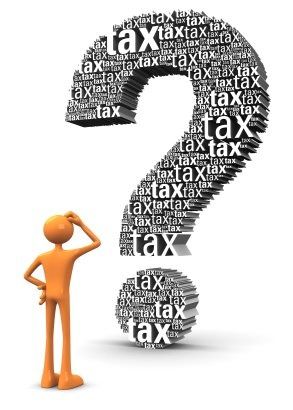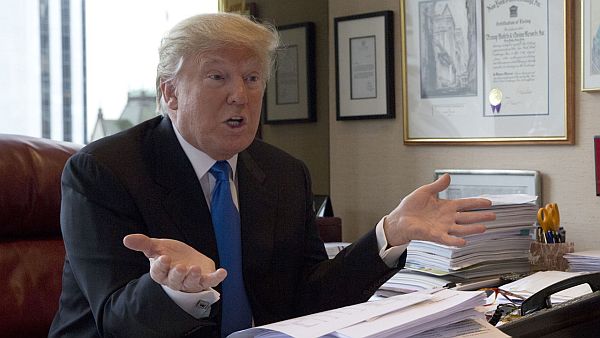San Luis Obispo, CA. - "It's none of your business." That's how Donald Trump responded to George Stephanopoulos of ABC on the tax rate paid by the GOP presumptive nominee. Trump eventually agreed to release his tax returns once the IRS completes the current routine audits.
Trump's reluctance to release his tax returns is consistent with his changing positions. When Mitt Romney, the GOP standard-bearer in 2012, was reluctant to disclose his tax returns, Trump encouraged him to do so. It's another story now.
Releasing his tax returns would not help Trump as he did not aid Romney. Voters in 2012 found out that the rate paid by Romney was less than 20 percent, a lower figure than that paid by many middle-class Americans. It helped to paint Romney as a wealthy man unable to understand the problems of the average American.
 |
Or maybe not. According to the Wall Street Journal, he has more than a billion and a half but not necessarily his oft-mentioned 10 billion. In 2005, however, a reporter calculated his assets at about 250 million dollars. Trump, upset by the low figure, sued the journalist for libel but did not win the case.
Trump has cultivated the image of being so rich that no one can buy him, as is the case with other politicians. He has accepted very few contributions in the primary but also benefited from millions and millions of free media publicity. As soon as he wants to go on TV or radio, the doors are always open because it helps with ratings. Radio and television are a business and money talks. Trump generates money for the media while at the same time receiving his benefits.
Having almost the nomination in his pocket, Trump has changed his mind on financial contributions and has decided to form a "world class" organization that will collect a billion and a half dollars needed for the campaign.
Trump will have to explain why he did not keep his promise of self-financing. Perhaps because he is not as rich as he tried to make us believe.
The tax returns would put an end to the speculations made by some like Romney who suggested that there maybe a bombshell in Trump's fiscal situation. It is believed that Trump has paid a very low rate because he has repeated several times he fights "to pay as little in taxes as possible." In the 1970s in fact, he paid "0" taxes, according to documents contained in a report by a 1981 New Jersey gambling regulators.
According to the newspaper Crain's New York Business, Trump also benefited from a deduction for individuals with income below $500,000 in 2014, 2015 and 2016. This does not clarify the value of his assets but does not seem suggest the fabulous income of a billionaire.
There are also doubts that he has not shown the great generosity he claims with charitable organizations and that he may have had dealings with less-than-completely honest people. It is also believed that his contributions to the political right and left would cause big headaches for possible favors received. Releasing his tax returns would also shed light on his four bankruptcies.
It's better, therefore, to keep it a secret. But the problem is that since 1970 all of the presidential candidates of the two major parties have released their tax returns. Trump would be the first exception.
In 2012, when Romney was reluctant to release his tax returns, Barack Obama attacked him with ads, questioning the tax rate he may have paid. Eventually Romney relented and released his returns because of the political cost.
Hillary Clinton, Trump's likely opponent in November, will repeat these kinds of ads to force clarity on the finances of New York tycoon.
Trump told Stephanopoulos that voters would not learn anything from his tax returns. His loyal Republican voters who handed him the nomination will believe him. General election voters are more demanding. The president or potential president's tax returns are not only Trump's business but that of all Americans.
Domenico Maceri, PhD, UC Santa Barbara, is a free lance writer living in San Luis Obispo, CA. He is the author of a book on Pirandello, one on Spanish grammar, and another on Italian grammar. He has also published a number of articles in newspapers and magazines around the world, some of which have won awards from the National Association of Hispanic Publications.Click HERE for more articles by Domenico Maceri.



